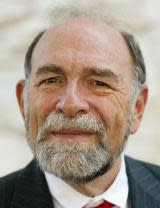Our mission is to increase the light in the world
- Oops!Something went wrong.Please try again later.

The festival of Chanukah, an eight-day celebration commemorating the rebellion of the Jews under the leadership of Judah Maccabee against the Syrian King Antiochus IV, who sought to suppress the observance of Judaism, their victory in battle, and the rededication of the Jerusalem Temple to the worship of God, begins this evening. The events associated with the Chanukah story (168-164 BCE) culminated in the establishment of the Hasmonean dynasty and an 80-year period of Jewish independence in the land of Israel.
Chanukah celebrates the courage of Judah and his compatriots and the miraculous nature of their triumph, which was a victory of “the few over the many, the weak over the strong,” as the liturgy of the prayer book expresses it. The rabbis of the Talmud embellished the Chanukah miracle by recounting the story of a tiny cruse of consecrated oil found in the Temple when the Jews reentered their sanctuary and sought to rekindle the lights of the Menorah, the seven-branched lampstand. That small container of oil, which seemed adequate for only one night’s illumination, lasted for eight nights, sufficient time for a new supply of oil to be prepared.
Previous column:Our faith and language: The holy tongue
Chanukah is primarily a home festival, although now also celebrated by congregational dinners and communal singing of holiday songs. There are special games and foods associated with the holiday, but the main observance is the lighting at home each evening of the chanukiyah, a Chanukah candelabrum with nine branches, one for each of the nights of the holiday and one for a “servant” candle with which to kindle the other lights. Starting on the first night with just one candle and increasing the number of candles by one each successive night is the standard and accepted practice. Each successive night that the oil continued to provide light was a greater miracle. Interestingly, in the Talmud the opposite opinion as to how the lights should be kindled had also been put forward, that we start with eight lights and decrease by one, because, as time went on, the flames grew weaker and dwindled.
Chanukah is referred to in Hebrew as chag ha-urim, the holiday of lights. Light, the first of God’s creations according to Genesis, is a powerful symbol in all of our respective faith traditions and is commonly used in religious rituals. In Judaism, the onset of the Sabbath at sundown on Friday afternoon is marked by the lighting of two (or more) candles in the home; these symbolize the joy and light that the observance of the Sabbath brings to faithful Jews. In the synagogue sanctuary, the ner tamid or eternal light, either a gas flame or a low-wattage light bulb, is suspended in front of the Ark in which the Torah scrolls are kept. It remains lit at all times and symbolizes the eternal presence of God. During the seven days of mourning following the funeral of a loved one, a week-long candle symbolizing the soul of the departed is lit and remains burning throughout the week. Similarly, on the anniversary of a dear one’s passing, it is customary to light a 24-hour candle to mark the day when the departed’s memory is most keenly felt and prayers are recited in his/her memory. Both Torah, originally designating the Five Books of Moses but subsequently denoting the entirety of Jewish religious teaching, and mitzvah, the commandments which connect us to God’s presence and express our desire to fulfill God’s will, are referred to as a light or lamp that guides and illumines our path in life.
Chanukah confirms our faith that the light of knowledge and truth and the light of the human spirit within which links us to the Divine can never be stamped out or extinguished. Chanukah teaches us that, just as we increase the brightness of the lights on the chanukiyah each night, so it is our mission to increase the light of truth, of knowledge, and of faith in our world.
Rabbi Barry Marks is rabbi emeritus of Temple Israel in Springfield.
This article originally appeared on State Journal-Register: Our mission is to increase the light in the world
